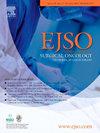European guideline informed RAG-based GPT-4 decision support tool in tumor board meetings for breast cancer treatment
IF 2.9
2区 医学
Q2 ONCOLOGY
引用次数: 0
Abstract
Breast cancer is the most common cancer among women worldwide. Treatment decision-making in multidisciplinary tumor boards is complex, involving integration of clinical guidelines, patient data, and preferences.
We retrospectively evaluated MammaBoardGPT, an few-shot in-context learning and Retrieval Augmented Generation (RAG) enhanced GPT-4 model with European guidelines and five Tumor Board labeled cases, against standard GPT-4 in 25 breast cancer cases discussed at a German hospital.
After recursive prompting, MammaBoardGPT achieved complete agreement with tumor board decisions in 84 % of cases, partial agreement in 16 % and no disagreements; standard GPT-4 showed 76 % complete agreement, 20 % partial agreement, and 4 % complete disagreements.
A significant difference was observed in MammaBoardGPT's (Stuart-Maxwell P = 0.0048) but not for GPT-4 agreement with tumor board decisions before versus after recursive prompting (Stuart-Maxwell P = 0.135), neither for MammaBoardGPT and GPT-4 in their tumor board decision agreement post-recursive prompting (Stuart-Maxwell P = 0.37).
These findings support MammaBoardGPT's potential for tumor board decision support, warranting prospective validation and real-time assessment.
欧洲指南告知肿瘤委员会会议中基于rag的GPT-4决策支持工具用于乳腺癌治疗
乳腺癌是全世界女性中最常见的癌症。多学科肿瘤委员会的治疗决策是复杂的,涉及临床指南、患者数据和偏好的整合。我们回顾性地评估了mamaboardgpt,这是一种基于欧洲指南和5例肿瘤委员会标记病例的少量情境学习和检索增强生成(RAG)增强GPT-4模型,与德国一家医院讨论的25例乳腺癌病例的标准GPT-4相比。在递归提示后,mamaboardgpt在84%的病例中与肿瘤委员会的决定完全一致,16%的病例部分一致,没有分歧;标准GPT-4显示76%完全一致,20%部分一致,4%完全不一致。在mamaboardgpt中观察到显著差异(stewart - maxwell P = 0.0048),但在递归提示前后,GPT-4与肿瘤委员会决定的一致性没有显著差异(stewart - maxwell P = 0.135),在递归提示后,mamaboardgpt和GPT-4的肿瘤委员会决定一致性也没有显著差异(stewart - maxwell P = 0.37)。这些发现支持了mamaboardgpt作为肿瘤委员会决策支持的潜力,保证了前瞻性验证和实时评估。
本文章由计算机程序翻译,如有差异,请以英文原文为准。
求助全文
约1分钟内获得全文
求助全文
来源期刊

Ejso
医学-外科
CiteScore
6.40
自引率
2.60%
发文量
1148
审稿时长
41 days
期刊介绍:
JSO - European Journal of Surgical Oncology ("the Journal of Cancer Surgery") is the Official Journal of the European Society of Surgical Oncology and BASO ~ the Association for Cancer Surgery.
The EJSO aims to advance surgical oncology research and practice through the publication of original research articles, review articles, editorials, debates and correspondence.
 求助内容:
求助内容: 应助结果提醒方式:
应助结果提醒方式:


